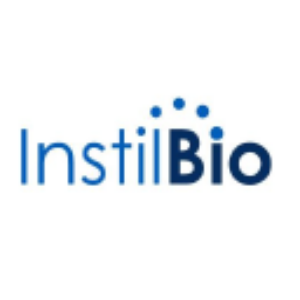Welcome to our dedicated page for Instil Bio news (Ticker: TIL), a resource for investors and traders seeking the latest updates and insights on Instil Bio stock.
Instil Bio, Inc. (TIL) is a clinical-stage biopharmaceutical company pioneering tumor-infiltrating lymphocyte (TIL) therapies for solid tumor cancers. This page serves as the definitive source for official company announcements, research developments, and strategic updates in cell therapy innovation.
Investors and industry professionals will find timely updates on clinical trial progress, regulatory milestones, and partnership announcements. Our curated news collection provides transparent access to Instil Bio's advancements in autologous TIL treatments and next-generation CoStAR-engineered therapies.
The repository includes press releases covering key areas: new clinical data disclosures, manufacturing facility expansions, intellectual property updates, and executive leadership changes. All content undergoes rigorous verification to ensure accuracy and compliance with financial reporting standards.
For consistent access to Instil Bio's latest developments, bookmark this page or subscribe to our news alert service. Regularly updated content supports informed decision-making for stakeholders tracking innovations in cancer immunotherapy.
Instil Bio (NASDAQ: TIL) has confirmed a cash runway extending beyond 2026, following a consolidation of R&D operations in Manchester, UK. The company anticipates initiating its ITIL-306 phase 1 study in the second half of 2023, pending Clinical Trial Application clearance from the UK MHRA, and expects initial clinical data in 2024. For Q4 2022, Instil reported a net loss of $53.8 million, with total cash and equivalents of $260.9 million as of December 31, 2022. Research and development expenses decreased to $20.7 million from $42.6 million in Q4 2021, while general and administrative expenses increased to $12.9 million compared to $11.2 million in the same quarter last year.
Instil Bio (NASDAQ: TIL) announced plans to reduce its US workforce by approximately 15 employees, consolidating manufacturing and Phase 1 clinical trials for its CoStAR-TIL™ therapy to Manchester, U.K.. This strategic move is anticipated to extend the company's cash runway beyond 2026. Initial clinical data from the ITIL-306 program is expected in 2023. The company is also evaluating the sale or sublease of its Tarzana manufacturing site to further improve cash resources. CEO Bronson Crouch expressed confidence in the Manchester team's capabilities and the prospects of their TIL therapies.
Instil Bio has resumed its Phase 1 trial of ITIL-306 for non-small cell lung cancer, ovarian cancer, and renal cell carcinoma after a voluntary pause. The company implemented additional quality safeguards in the manufacturing process. Initial data readout is expected in 2023 at a medical conference. Instil anticipates a cash runway extending into 2025, excluding potential financing from its Tarzana manufacturing site. The focus remains on developing next-generation tumor infiltrating lymphocyte therapies.
Instil Bio (NASDAQ: TIL) announced significant changes, including the discontinuation of its unmodified TIL programs like ITIL-168 and a workforce reduction of approximately 60% in the U.S. The company will focus on its CoStAR-TIL programs, particularly ITIL-306, now in a Phase 1 trial for various cancers. This strategic shift aims to enhance TIL therapies' efficacy and safety, with initial data expected next year. The decision to discontinue ITIL-168 was based on the prioritization of the CoStAR platform, emphasizing a realignment from a registration-focused to a development-stage model.
Instil Bio (TIL) announced a pause in the DELTA-1 trial of ITIL-168 due to manufacturing issues, with plans to provide updates in Q1 2023. Enrollment in DELTA-2 is deferred to focus on higher-priority projects. The company has dosed its first patient with ITIL-306 for non-small cell lung cancer, expecting initial results in 2023. Dr. Robert Hawkins is appointed Head of R&D, while former CMO Dr. Zachary Roberts has resigned. Instil confirms its cash runway into 2025, aided by a planned sale-leaseback of its Tarzana facility, despite reporting a net loss of $56.2 million in Q3 2022.

